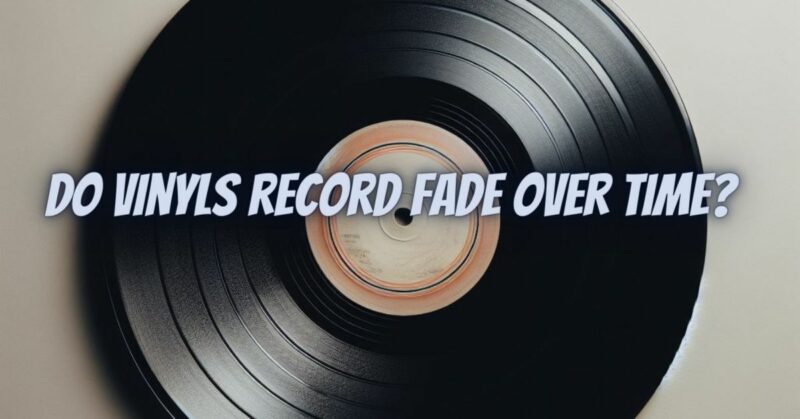Vinyl records have long been cherished as timeless relics of music history. Their analog charm and tactile appeal continue to captivate music enthusiasts and collectors alike. However, as with any physical medium, concerns arise about the long-term durability and resilience of vinyl records. In this article, we will explore the question: do vinyl records fade over time? We will delve into the factors that affect the longevity of vinyl records, the potential for deterioration, and how to preserve these musical treasures for generations to come.
The Structure of Vinyl Records
To understand whether vinyl records fade over time, it’s essential to grasp their composition. Vinyl records consist of several key components:
- Vinyl Disc: The main body of the record is made of vinyl, a plastic material known for its durability.
- Grooves: The music is encoded as grooves in the vinyl’s surface. The needle of a turntable tracks these grooves to produce sound.
- Label: The center of the vinyl record features a label with essential information about the recording, artist, and album.
Factors That Impact Vinyl Record Longevity
Several factors can influence the condition and longevity of vinyl records:
- Handling and Storage: How records are handled and stored significantly affects their condition. Proper storage, away from direct sunlight and temperature extremes, helps prevent deterioration.
- Dust and Debris: Dust and debris can accumulate on the record’s surface, causing wear on the grooves and potentially affecting playback quality.
- Exposure to Light: Prolonged exposure to direct sunlight can cause the vinyl material to warp or degrade. UV radiation can also damage the record labels.
- Storage Position: Storing records vertically on their edges prevents warping and keeps them in optimal condition.
- Humidity: Extreme humidity levels can lead to mold growth on the vinyl surface, potentially causing permanent damage.
- Sleeves and Jackets: High-quality inner sleeves and outer jackets protect records from dust, scratches, and environmental contaminants.
- Playback Equipment: The quality of the turntable, stylus, and cartridge used for playback affects the wear and tear on the grooves.
Do Vinyl Records Fade Over Time?
In general, vinyl records do not fade over time in the way that printed materials or photographs might. However, they can experience wear and deterioration, particularly if they are mishandled or improperly stored. Here are some common issues that can affect vinyl records:
- Surface Noise: As records are played, they accumulate fine particles and dust in the grooves, leading to surface noise. Regular cleaning can help mitigate this issue.
- Wear and Tear: Repeated playback with a worn or damaged stylus can gradually wear down the grooves, reducing audio quality.
- Warping: Exposure to heat or uneven storage can cause records to warp, making them unplayable.
- Storage Damage: Storing records in tightly packed conditions can cause warping or damage to the outer jackets.
- Mold and Mildew: Records stored in humid environments may develop mold or mildew on the surface.
Preserving Vinyl Records
To ensure the longevity of vinyl records and prevent deterioration, consider the following preservation tips:
- Proper Storage: Store records upright in a cool, dry place away from direct sunlight and extreme temperature fluctuations.
- Inner Sleeves: Use anti-static inner sleeves to protect the record surface from dust and debris.
- Outer Jackets: Invest in high-quality outer jackets or protective covers to safeguard the record jackets from wear and tear.
- Regular Cleaning: Clean records before and after playback using a carbon fiber brush or a record cleaning machine to remove dust and debris.
- Proper Handling: Always handle records by their edges and labels to avoid smudging or scratching the grooves.
- Quality Playback Equipment: Use a high-quality turntable, cartridge, and stylus to minimize wear on the records.
- Humidity Control: Maintain a controlled humidity level in the storage area to prevent mold and mildew growth.
Vinyl records, with proper care and maintenance, can endure for generations without significant fading or deterioration. While they are not impervious to wear and tear, vinyl records have proven their resilience and longevity over decades. By following best practices in handling, storage, and maintenance, collectors and enthusiasts can continue to enjoy the timeless beauty of vinyl records for years to come.


